SUMMARY
This is AI generated summarization, which may have errors. For context, always refer to the full article.


MANILA, Philippines – In her first months as secretary of the Department of Migrant Workers (DMW), Susan “Toots” Ople aims to conduct a “systems review” to improve how the government caters to overseas Filipino workers, and hold virtual town hall meetings with overseas Filipino workers (OFWs).
Ople explained her plan in a Rappler Talk interview on Monday, May 30, a month before the start of the Ferdinand Marcos Jr. administration. Ople, a longtime OFW rights advocate, will be only the second DMW secretary since the agency was created through a law signed by President Rodrigo Duterte in 2021.
She will be the first DMW secretary with a budget as the agency is set to get its first General Appropriations Act allocation in the 2023 national budget yet.
“I’m pretty confident in the incoming administration. We will strive to do our best for our OFWs and their families as well,” said Ople, after talking about the two meetings she’s had with president-elect Marcos about his marching orders for her department.
These are some of the plans and reforms Ople spoke about during the interview:
- Gather more data and use data analysis to better inform OFW policies, one of Marcos’ marching orders
- Formulate programs to address needs of families, especially children, left behind by OFWs, another marching order
- Conduct a systems review in her first month as secretary to improve OFW services, weed out unnecessary steps, or fees in the process
- Hold virtual “town hall meetings” at least twice a year to dialogue with OFWs and introduce the department
- Improve the Philippine Overseas Labor Offices (POLO) abroad, to be renamed Migrant Workers Office, by ensuring that better qualified people will be appointed to man them, and assist these personnel so they can respond in a timely manner to OFWs
- Improve database of blacklisted OFW employers so they will never be able to hire Filipinos again. One way to do this is by including their residential address and photograph, with the aim of plugging a loophole exploited by employers in the past.
- Enter into as many anti-human trafficking agreements as possible with other countries. Saudi Arabia is a priority.
- Ensure OFW contracts with employers include provisions from bilateral labor agreements that safeguard their rights

Ople has spent the past few days since the announcement of her nomination meeting with former and incumbent labor officials – including Labor Secretary Silvestre Bello III, incoming labor chief Bienvenido Laguesma, and former Overseas Workers Welfare Administration administrator Marianito Roque.
“I’ve been touching base with people I respect and I know are very active in labor migration,” she told Rappler.
Revisiting OEC, PhilHealth contributions
One goal of the systems review Ople hopes to conduct is to reassess the need for certain permits or fees that OFW groups have long complained about.
The Overseas Employment Certificate (OEC), for instance, is one cost borne by migrant workers but is necessary as a way for the government to track them and thus ensure better services. But Ople says it should be improved.
“It is so easily torn. There has to be a better way. I think digitalization, we may need to modernize the OEC, and even the PDOS (Pre-Departure Orientation Seminar Certificate) and the PEOS (Pre-Employment Orientation Seminar Certificate). So many things that can be done with technology,” said the presumptive secretary.
The need to pay PhilHealth contributions is also one requirement Ople wants to review and hold consultations on.
“I have always been belaboring the point that most OFWs have health insurance in the destination countries so I would really like to have a dialogue with our legislators and also with PhilHealth because it’s such an enormous burden…. But I’m not in the position now to promise that when we assume the post, this is what will happen because it should be a product of dialogue with stakeholders and with our partners in Congress and also in the executive branch,” said Ople.
Ensure POLOs are more responsive
Philippine Overseas Labor Offices (POLO) are supposed to be OFWs’ go-to Philippine government agency abroad, especially to respond to emergencies or abuses. But many migrant workers complain about POLO personnel who don’t respond to their calls or who ignore their concerns.
Ople echoed this, speaking of “masungit” (snobbish) POLO staff who leave OFWs hanging.
Her solution is two-fold: ensure POLO staff are competent and qualified by subjecting them to a more rigorous screening process, including an exam; and giving adequate assistance to them when on the job.
The functions of POLOs, under the law that created the DMW, will be placed under Migrant Workers Offices.
“I think one area we need to develop is a ‘caring for carers’ program, meaning, support those in the post. Why are they snobbish? Because they have so many deadlines. Some have to think about such heavy problems daily, problems that make it difficult for them to sleep. We need to find a way to distribute the responsibilities,” said Ople.
In one of her meetings with Marcos, she explained the need to require MWO or POLO personnel to pass exams and undergo better competency screening.
“I said I want to bring back the requirement of exams, similar to those in the foreign service. There’s an exam, a panel interview so that they know this is not an ordinary job you can take just because you want to go abroad. Not like that, there are competencies involved,” she said.
But Ople said even before implementing her target reforms, she would consult OFWs themselves first, through town hall meetings she would likely conduct starting August or September.
“We will go online just to hear them out and say, ‘These are our plans, what do you think, how can we refine this further?’ Because we also have to explain what the department is all about,” said Ople.
“They should feel it’s their home in the bureaucracy. Ito ‘yung bahay niyo (This is your house) so please tell us, kung baga sa bahay (like in a home), what would make you more comfortable.” – Rappler.com
Add a comment
How does this make you feel?
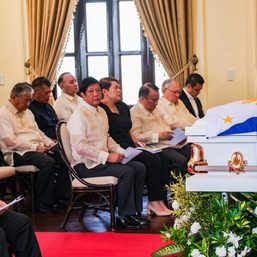
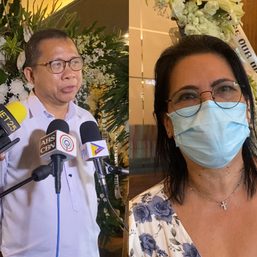
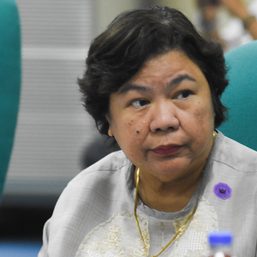
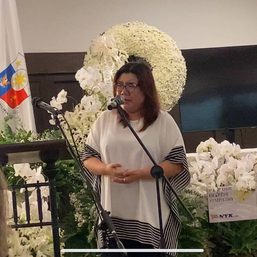
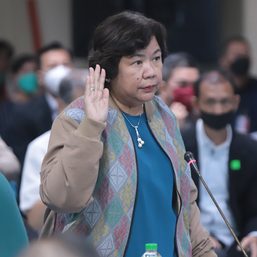
There are no comments yet. Add your comment to start the conversation.